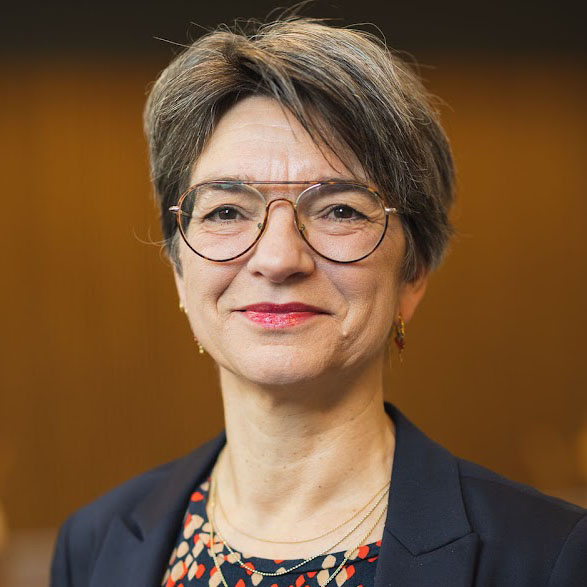Researching the Reading Experience in the Digital Age
At this international conference, we explore the latest research on reading and readers and how the area is evolving. The conference takes place on 26-28 June 2024 (conveniently scheduled before SHARP 2024).
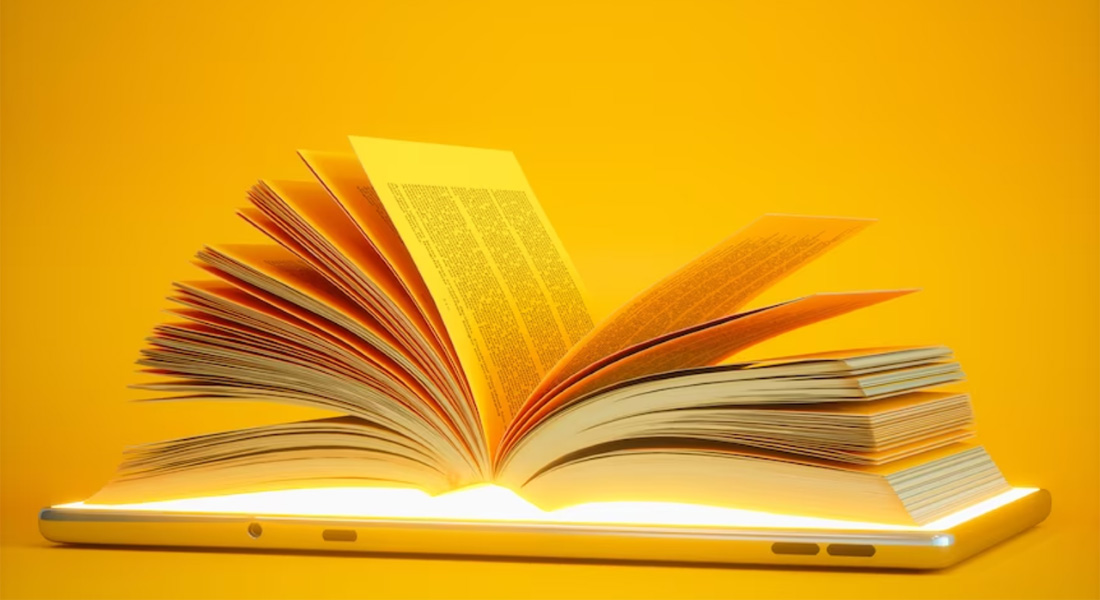
In June 2013, Marianne Martens and Gitte Balling participated in an international conference called Researching the Reading Experience in Oslo, Norway, which focused on various themes connected to reading and readers. Plotting the Reading Experience: Theory/Practice/Politics (Rothbauer, Skjerdingstad, McKechnie & Oterholm (Editors.), 2016), is an edited collection that arose from papers presented at this conference.
Since 2013, reading now takes place in print, on devices, and in a sociotechnical landscape that connects readers, publishers, authors, illustrators, librarians, booksellers, and more. We would like to use this conference to explore some of the latest research in this area, and possibly, to create new, collaborative projects as well. As with the earlier conference, an edited collection of a selection of presented papers is planned.
Registration
The conference is open for registration until 20 May at 08:00 CET.
Participants in the conference are recommended to stay at the following:
- Savoy Hotel & Bar, Vesterbrogade 34, 1620 Copenhagen V (get a 20% discount with the promo code “20COR”).
- Ibsens Hotel, Vendergade 23, 1363 Copenhagen K
- Hotel Kong Arthur, Nørre Søgade 11, 1370 Copenhagen K
- Wakeup Copenhagen, Borgergade 9, 1300 Copenhagen K
- DanHostel Copenhagen City, H.C. Andersens Boulevard 50, 1553 København V
- Generator Hostel, Adelgade 5-7, 1304 Copenhagen
Danielle Fuller & DeNel Rehberg Sedo
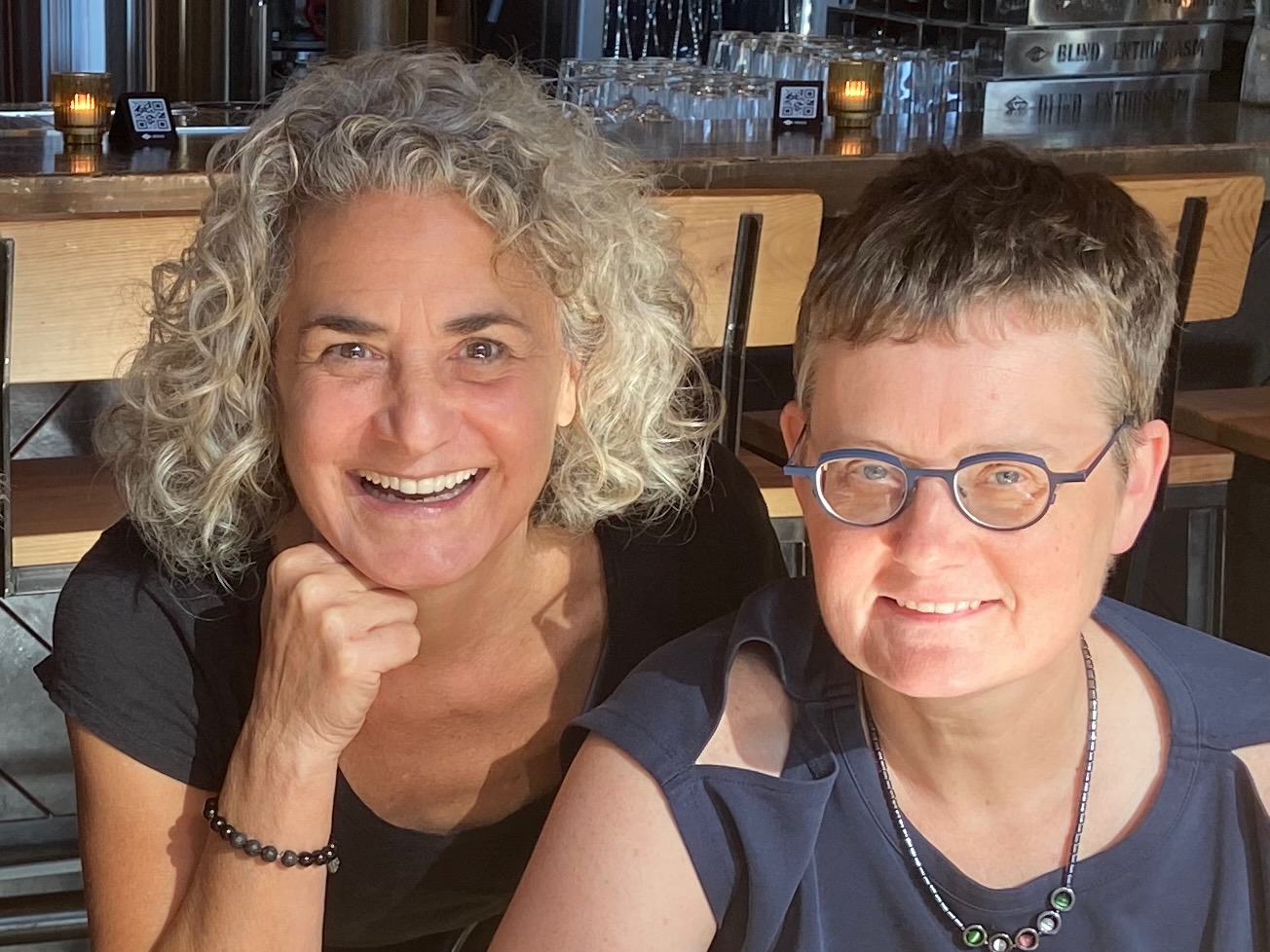 Danielle Fuller (she/they) is a Full Professor in the Department of English & Film Studies and Adjunct Professor in Sociology at the University of Alberta. Before immigrating to Canada in 2018, she worked at the University of Birmingham (UK) for nearly 21 years.
Danielle Fuller (she/they) is a Full Professor in the Department of English & Film Studies and Adjunct Professor in Sociology at the University of Alberta. Before immigrating to Canada in 2018, she worked at the University of Birmingham (UK) for nearly 21 years.
DeNel Rehberg Sedo (she/her) is a Professor in the Department of Communication Studies at Mount Saint Vincent University (Canada), and lecturer in the joint (with Saint Mary’s University) Graduate Gender and Women’s Studies Program.
Danielle and DeNel have collaborated for over 20 years on various interdisciplinary projects that investigate readers and reading cultures on- and offline. Among their co-authored publications are Reading Beyond the Book: The Social Practices of Contemporary Literary Culture (Routledge, 2013) and Reading Bestsellers: Recommendation Culture and the Multimodal Reader (Cambridge University Press, 2023). They co-edited a Special Themed Section of Participations: International Journal of Audience Research (2019) called “Readers, Reading and Digital Media,” and recently published, “Young Adult Readers and the Genres of Online Book Reviewing” (2023) in the “Reading with Algorithms” cluster edited by Susanna Sacks and Sarah Brouillette for Post45.
Abstract: Mixing, Media, Messiness, and the Multimodal Reader Experience: Some Provocations About Method
In a conference of researchers who investigate readers, we don’t need to tell you that such a task can be a messy business! Theories of reading and conceptualizations of readers, however, often mask that, omitting many aspects of our research process. In our presentation we will examine how some of our recent methods of research have mediated our encounters with the MMR3. In defining our idea of the multimodal reader cubed, we will answer various questions that those attending a conference called “Researching the Reading Experience in the Digital Age” might have. How can we best examine and understand the media ecologies with which readers engage—both on- and off-line? Why and how does genre matter—both as a social action and as a set of textual conventions? How can we look for and make sense of affinity within networked reading communities, and why should we? What are the limits and benefits of our various methods? And, how can we make sense of the messiness of the research process? In our talk we will draw upon our experiences working on our Reading Bestsellers project as well as our current collaborative team project, “Reading for Our Lives: Readers, Memoir, Social Media,” which brings reading studies into dialogue with autobiography studies.
Sarah Mygind
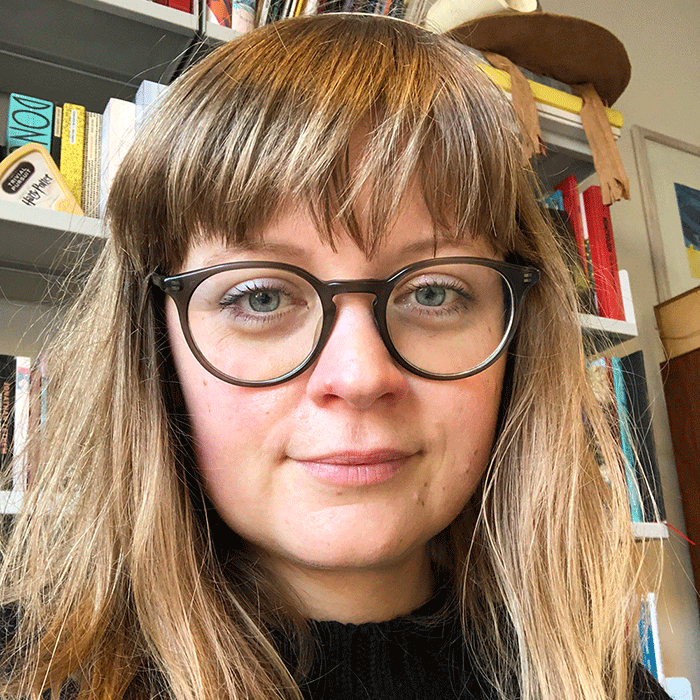 Sarah Mygind (she/her), PhD, is Associate Professor in the Department of Comparative Literature and Centre for Children’s Literature and Media, Aarhus University, Denmark. Her research examines the transmedia relations of contemporary children’s and young adult’s literature, including digital literary forms, adaptation and transmedia practices. She is interested in how media and technology influence literary stakeholders and literary cultures. Her new research project focuses on young people’s literary media practices and cultures in a Danish context and engages with sociological perspectives on and approaches to this field. She is the author of Young Adult Literature: Transmedia Transformations (2023, Cambridge University Press).
Sarah Mygind (she/her), PhD, is Associate Professor in the Department of Comparative Literature and Centre for Children’s Literature and Media, Aarhus University, Denmark. Her research examines the transmedia relations of contemporary children’s and young adult’s literature, including digital literary forms, adaptation and transmedia practices. She is interested in how media and technology influence literary stakeholders and literary cultures. Her new research project focuses on young people’s literary media practices and cultures in a Danish context and engages with sociological perspectives on and approaches to this field. She is the author of Young Adult Literature: Transmedia Transformations (2023, Cambridge University Press).
Abstract: Young people's literature in transmedia networks
In the contemporary media landscape stories, news, brand identities and other kinds of content are distributed and consumed across a wide variety of media. Transmedia storytelling strategies have made their entry into the practices of large media conglomerates and the creative design practices of independent producers alike (Jenkins 2008; Dena 2009). In transmedia studies, literature for children and young people is often positioned as mere source material – a resource to be tapped – for film and series adaptations that then provide material for further integrated transmedia expansions and franchising. As a result, literature and books are rarely studied as active material agents in transmedial worlds (Tosca & Klastrup 2020). Yet literature for children and young people is designed, produced, distributed, and consumed under new digital and transmedia conditions in our time where literature is part of reciprocal transmedial feedback loops that influences meaning-making processes and experiences. In a Scandinavian context the webseries SKAM has set an example for successful audio-visual transmedia storytelling for young people, however, the series also entered the conventional literary field via a series of published screenplay books that offered fans a new media-specific experience of the transmedial world. In this presentation, drawing on SKAM and other cases, I will shed light on how literature and reading take part in and establish diverse transmedial networks highlighting how transmedia relations exist in different scales and between different media.
Wednesday 26 June
| 14:00 - 15:30 | Registration and snacks |
| 15:30 - 17:00 | Welcome session and Interactive Conference Launching Workshop |
| 17:00 - 18:30 | Reception at Copenhagen University |
Thursday 27 June
| 8:00 - 9:00 | Registration |
| 09:00 - 10:00 | Keynote speaker #1: Danielle Fuller and DeNel Rehberg Sedo |
| 10:00 - 10:30 | Coffee break |
| 10:30 - 12:00 | Parallel sessions 1 |
| 12:00 - 13:00 | Lunch (Copenhagen University’s Cafeteria) |
| 13:00 - 14:30 | Parallel sessions 2 |
| 14:30 - 15:00 | Coffee break |
| 15:00 - 16:30 | Parallel sessions 3 |
| 18:00 - 20:00 | Conference Dinner at Vækst |
Friday 28 June
| 9:00 - 10:30 | Parallel sessions 4 |
| 10:30 - 11:00 | Coffee break |
| 11:00 - 12:00 | Keynote speaker #2: Sarah Mygind |
| 12:00 - 12:30 | Closing session - Information about edited collection and goodbye |
| 12:30 | Brown bag lunch |
|
Credit: Zarko Ivetic |
Gitte Balling, PhD, is associate professor at Copenhagen University, Department for Communication. Her research interests pivot around reading, media and young people with a special interest in digital reading and reading communities. Her research is focused on materiality and the way different reading materials (print vs reading) influence the reading experience. Her research further includes issues related to cultural politics and public libraries promotion of literature and supporting of reading motivation. She has written several articles on reading and digital reading, especially regarding young people, and on cultural policy with focus on children. Read more about Gittes research. |
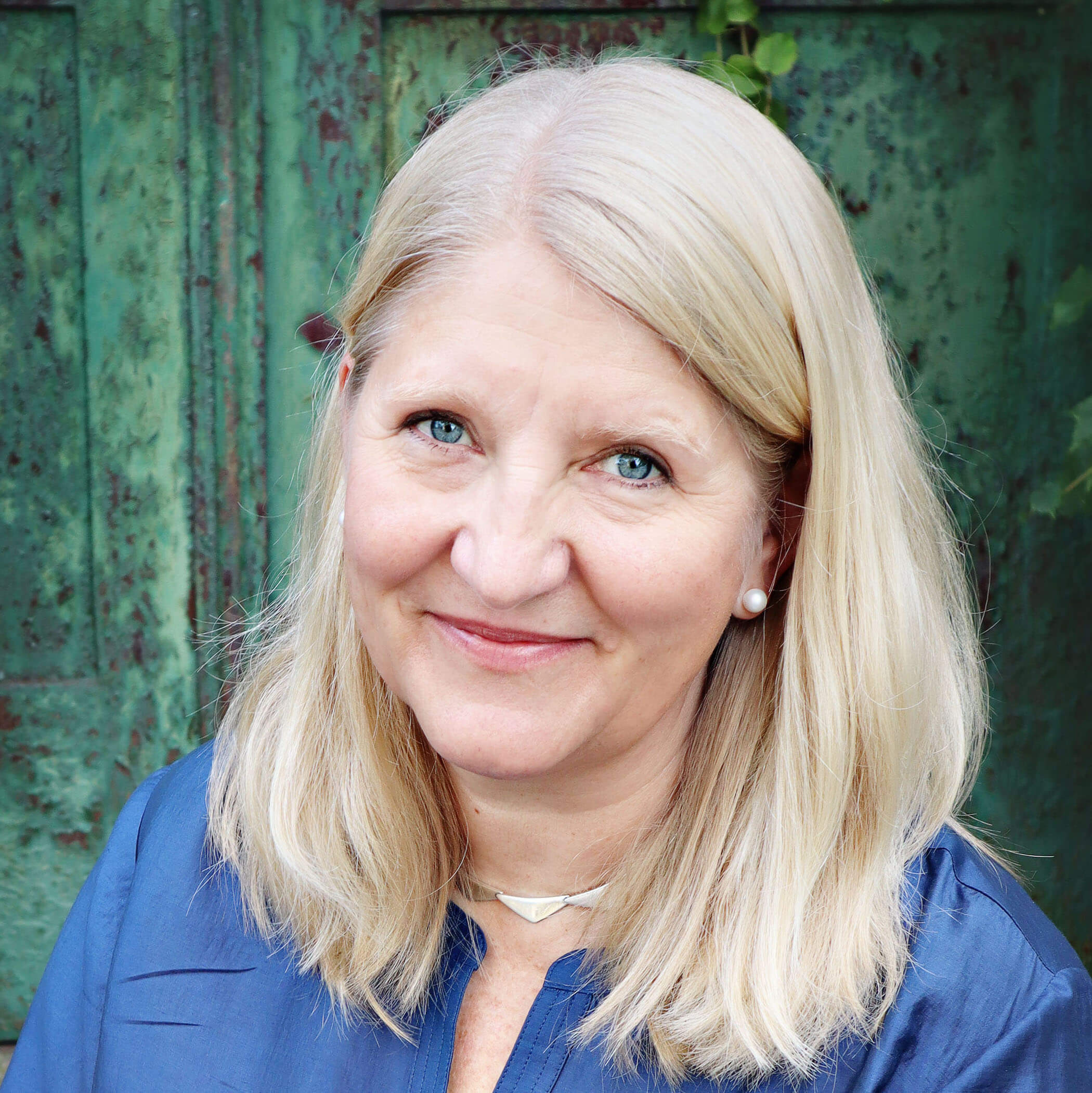 |
Marianne Martens, PhD, is Professor at Kent State University’s School of Information. Her research examines the interconnected fields of young people’s literacy, youth services librarianship, and publishing for young people from historical perspectives, to a special focus on digital youth. Here, her research interests converge at the intersection of books and technology in new literary formats and include the impact of digital reading experiences and the multiliteracies required to interpret nonlinear, multimodal materials, as well as visible reading audiences, and the information they share. She is the author of Publishers, Readers and Digital Engagement: Participatory Forums and Young Adult Publishing (Palgrave Macmillan), and The Forever Fandom of Harry Potter: Balancing Fan Agency and Corporate Control (Cambridge University Press). Read more about Marianne. |
Before digital technologies enabled social reading opportunities, readers could engage in shared reading experiences by participating in literary activities and events such as reading groups, book clubs, literary festivals, and book talks. Today, these social activities still take place in person, but also in digital or hybrid spaces, and readers consume books in a sociotechnical landscape that includes multiple digital devices and a range of social media platforms.
Whether they prefer reading in print or on digital devices, readers communicate their taste across digital reading communities on social media platforms we are collectively calling the Bookternet (Ferschleiser, 2016), including #Bookstagram, #BookTube, #BookTok and more. These social platforms further change the landscape around books and readers, as information about books and readers’ taste is visibly disseminated across social media channels.
The Bookternet has changed the way books are produced, disseminated, and consumed. Yet for readers, these platforms have created new ways to engage around the books they love as they participate in fandom and online reading communities, write peer-to-peer recommendations, or create book art in homage to their favourite titles.
At the conference we welcome presentations from all kinds of researchers and from interdisciplinary fields. We welcome individual papers that explore the changes in the literary landscape, from historical perspectives to new forms of interactions and relations which are enabled through digital technologies. We invite submissions that address one of the following sub-themes including but not limited to:
- Social reading
- Reading communities
- Reading and affordances
- New book consumption patterns
- New book publishing strategies
- Reading and materiality
- Reader identity and self representation
- DIY Reading culture
- Reading and LGBTQIA+ studies perspective
- Everyday reading practices
- Access (or not) to books in the digital age (issues with divides, bans, etc.)
Format
Talks and panels
We invite you to submit your 250-word abstract for a 20-minute talk. If you would like to submit a panel of multiple speakers, it should be for no more than 90-minutes including time for Q&A. Please include a short 100-word biography of speakers.
Posters
Please submit up to a 150-word abstract and a short 100-word biography.
Due date
Please submit your abstracts and biographies by 16 February 2024 to bookternet@ku.dk. Decisions will be made by the organizers by 15 March 2024.
Important dates
- Deadline for submissions has passed
- Deadline for registration: 20 May 2024
- Conference dates: 26-28 June 2024
Map of South Campus
View directions.
View on map of the Faculty of Humanities - South Campus.
View map of South Campus (pdf).
Transportation
The nearest metro station is Islands Brygge St. Bus line 33 from Rådhuspladsen also stops at Islands Brygge St.

